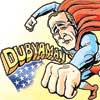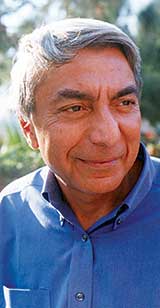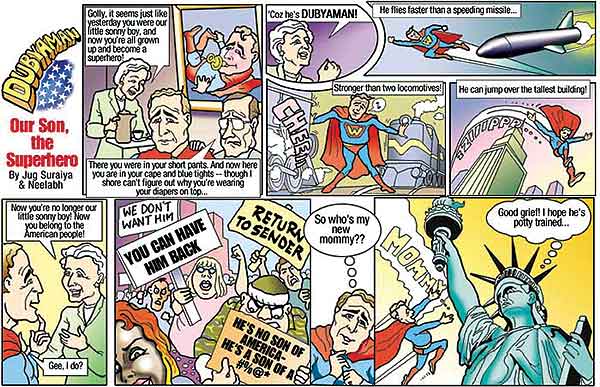
 The world changed in a lot of ways after 9/11. The after-shocks of the suicide bombers triggered tremors in South Asia which are reverberating still. And the other way the world changed was the birth of the Dubyaman comic strip.
The world changed in a lot of ways after 9/11. The after-shocks of the suicide bombers triggered tremors in South Asia which are reverberating still. And the other way the world changed was the birth of the Dubyaman comic strip.
Dubyaman comes from the Texan pronunciation of the middle initial "W" of US president George W Bush. Dubyaman is patterned after Superman, but the caped crusader here is actually an anti-superhero. "The real Dubya is not renowned the world over for his intellect, and this is a spoof on his war on terror," said the comic strip's co-creator, Indian journalist Jug Suraiya.
But now that the Afghan campaign is winding down, isn't Dubyaman getting a bit stale? Suraiya shakes his head vigorously. He was in Kathmandu this week holidaying, and he was staying at the Everest Hotel where all the journalists were.
"Even at the Kathmandu summit we heard echoes of George Bush's rhetoric: you are with us or you are against us," says Suraiya. Just goes to show that Dubyaman has now become a role model for other world leaders who are fighting terror.
In fact it was this Bush line that inspired the 55-year-old associate editor of the Times of India to create the comic strip. "A friend called me and asked me to switch on the tv," says Suraiya recounting the events of 11 September. "America is falling down." He is allergic to tv, but switched it on. A few minutes later he was dictating the TOI 10-11 editorial entitled \'Target Humanity'. No sooner was he done, and after watching more footage of the political reaction to the attacks, it struck him that leaders were beginning to make more and more belligerent noises, and the retribution was aimed at South Asia.
"Here we had the least legit leader who barely scraped through controversial elections threatening a conflagration that could happen in our backyard," he says. "I feared that the mental vacuity associated with the rhetoric could do more harm." His fears were compounded after India and Pakistan began to compete to make offers to help the US to bring the war to the already volatile region. Suraiya then wrote a script and discussed it with staff artist Neelabh Banerjee.
The rest is history, Dubyaman was born on Sunday, 16 September as a black and white strip that appeared in the Times of India. Vice-president Samir Jain loved it and wanted it continued, and so it has. Suraiya says he is using humour to spread common sense, and to cut through the political rhetoric.
Dubyaman is getting something of a cult following. "There are those who like it and those who hate it," says Suraiya. "Few are middle-of-the-roaders." The haters and non-haters also tend to sway editorial decision-making at the TOI when many wrote in to say it was not relevant anymore. Besides Times of India, Dubyaman today is also syndicated in papers in Europe as well as Nepali Times.
Why is India's most influential paper against US democracy, many have asked. Suraiya tells them the paper is not against democracy but against terror in all its manifestations. "It is my protest against war and what is happening around us." To him terror is a lifestyle disease, like cancer. It is only after the pathological conditions begin to appear, do people ask themselves "why me?".
Those who hate Dubyaman find the humour to be in bad taste, others argue that it exonerates terror. "It does not," Suraiya says firmly. "It tries to show the different faces of terrorism, including bombing of schools and hospitals." Dubyaman is now getting help from cameo-performances by Indian leaders like Foreign Minister Jaswant Singh, and prime minister Atal Behari Vajpayee.
Then there are those who love it. One fan sent Suraiya a unique letter to the editor: a t-shirt with "Uncle Osama Wants You" printed on the back.

(For an archive of Dubyaman, see www.timesofindia.com)


